It’s that time of year when we look at key trends in tourism marketing for 2024. This year, we can expect integration of generative AI like ChatGPT, renewed importance of influencers, the fragmentation of social media, the evolution of online search behavior, and the complexities of online distribution. These trends highlight how technological advancements and changing consumer behaviors are shaping the future of travel and hospitality marketing.
1. ChatGPT and Gen AI – From Novelty to Integration
The integration of generative AI, like ChatGPT, in tourism marketing will revolutionize content creation and distribution in 2024. These technologies enable the production of high-quality, personalized content at scale, significantly reducing production time and cost while increasing customer engagement. The potential of generative AI in creating text, audio, images, and video content with remarkable quality and realism is a game-changer, despite some limitations and ethical considerations.
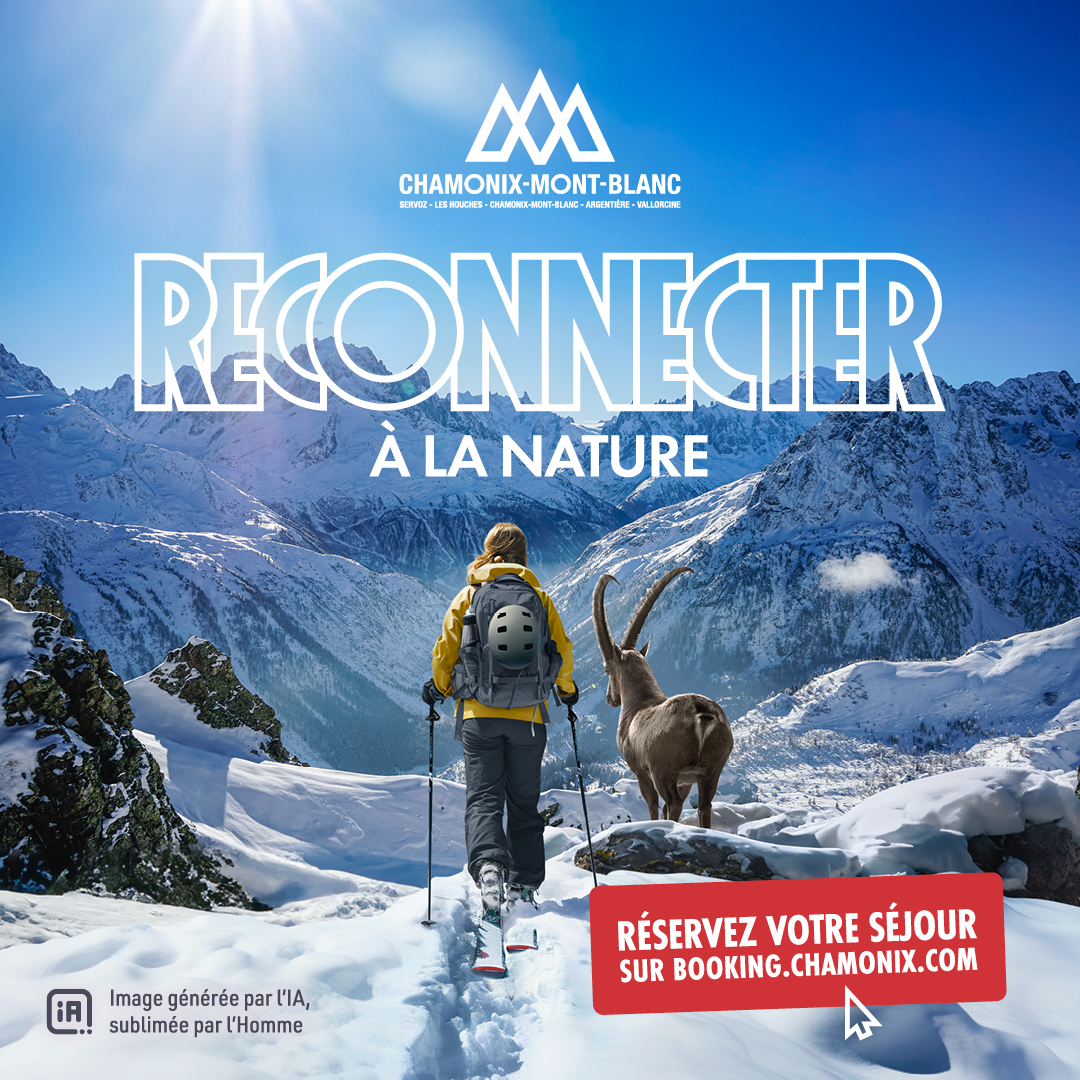
We are already seeing destinations, hotels, restaurants and attractions testing the possibilities. Some more successfully than others, but nevertheless striving to take advantage of potentiel benefits from these new technologies.
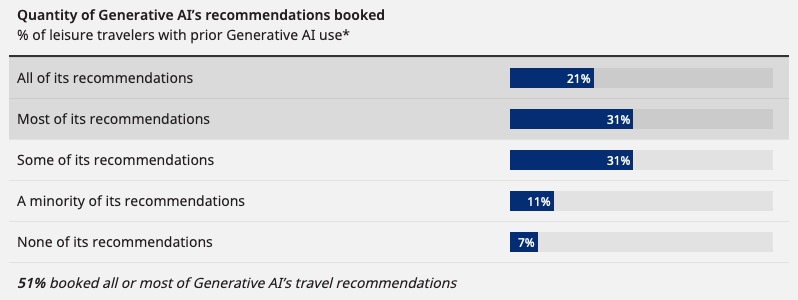
One thing is for sure, though. Is 2023 was the year of curiosity towards these tools, we can expect more consumers and marketers alike to embrace ChatGPT, MidJourney and other similar platforms. Already, there are clear signs on this phenomenon happening. A recent study by Oliver Wyman showed that about 1/3 of consumers had used GenAI in the inspiration, planning or booking stages of a leisure travel decision. More importantly, 84% of these consumers indicated satisfaction with the quality of Generative AI’s recommendations. And 51% booked all or most of GenAI’s travel recommendations. In other words, there are new behaviors being shaped, and the industry needs to take notice!
Read also: How Generative AI is Transforming Travel Marketing
2. The Resurgence of Influencers: A Strategic Marketing Tool
Despite past controversies, influencers remain a cornerstone of tourism marketing in 2024. Their role has become more strategic, focusing on niche markets and offering authentic experiences. Tourism businesses recognize the importance of collaborating with influencers to reach diverse and engaged audiences, leveraging their ability to set trends and influence travel decisions.
In fact, the influencer marketing industry is heating up, expected to reach $22.2B in revenues by 2025! And with social media algorithms getting more and more complex, yielding poor reach and engagement, many travel and hospitality revert to third parties and influencers to speak on their behalf, as demonstrated by the above video. (This was a successful campaign for the province of Quebec, in Canada, targeting its key international markets with a series of short videos, paid and organic, with differemt influencers for each market)
Read also: 5 Reasons To Work With an Influencer
3. Fragmentation of Social Media: A Targeted and Diverse Approach
In 2024, the fragmented landscape of social media demands a multi-platform marketing strategy. This trend requires a deep understanding of different audiences and their behaviors on each platform, enabling more personalized and effective marketing messages. A recent study by Hootsuite showed clear evidence of what can be called “social media fatigue” amongst users… and organizations alike. So in 2024, we can expect many brands to question their presence on some platforms, perhaps pivot and revisit their approach. This can mean doubling down on short videos, reduce post frequency or even pulling out altogether from some platforms (X, anyone?).
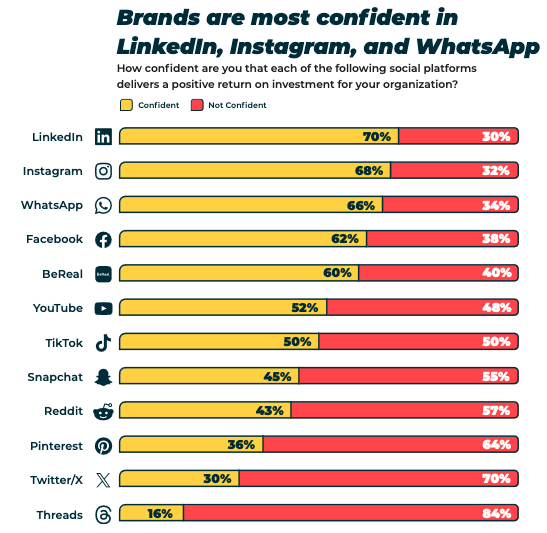
A recent report from LegerDGTL showed the average Canadian user is now active on 6.1 social media platforms, including messenging apps. Thus, it’s becoming increasingly complex to reach our target audience across these platforms, which implies rethinking what works, and what doesn’t. It’s interesting to see how Linkedin‘s profile has risen, making it now on top of the list of social media with which brands have confidence for getting positive ROI. Not surprisingly, X (formerly Twitter) is at the bottom of this list.
4. Evolution of Online Search: Enhancing User Experience
The evolution of online search behavior, driven by AI, is changing consumer habits. Intelligent algorithms facilitate the discovery of destinations and travel planning by offering personalized suggestions. This trend challenges tourism businesses to optimize their online presence and adapt their SEO strategies to remain visible and relevant in AI-driven search results.
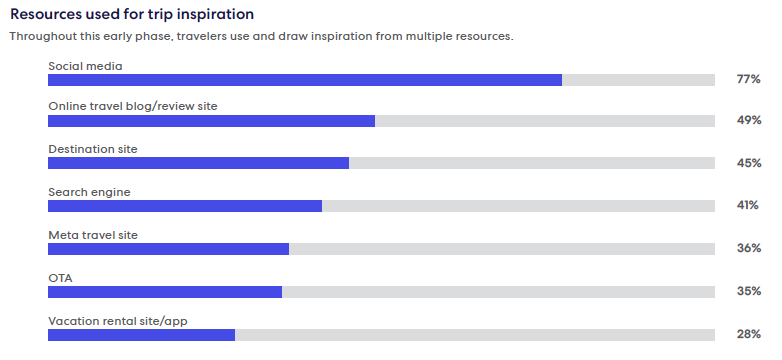
According to a recent report from Expedia Group, social media remains the #1 source of inspiration when it comes to travel decisions, ahead of other ressources like review sites, destination sites, search engines or even OTAs like Expedia, Booking or VRBO. Social media thus impacts online search behaviors, specially with travelers aged under 45. In fact, according to a Google insider, it seems as much as 40% of users under 45 now go to TikTok or Instagram as their first ressource whenever searching online, making these platforms that much more crucial to consider in the travel and hospitality digital ecosystem.
5. Online Distribution: Balancing Direct and Indirect Bookings
Online distribution remains a critical challenge in 2024, balancing direct bookings with third-party platforms. Tourism businesses must navigate between maintaining a presence on booking platforms and encouraging direct bookings to maximize profits and control the customer experience. This dynamic requires a flexible and innovative online distribution strategy, but this comes at a cost. In fact, Skift estimated that hotels paid out over $75B in commissions in 2023 to third parties such as Expedia, Booking and other bedbanks. Can you imagine if only a small portion – say 2% or 5% – of these sales were direct, how this could impact bottom line?

This has been the rationale behind massive and aggressive campaigns by major hotel chains in the past couple of years, seeking to educate consumers to “book direct” rather than through an OTA. While direct bookings did in fact see a quick, albeit ephemeral, uptake during the pandemic, things are now back to where they were in 2019.
In fact, with both Booking and Expedia ramping up their respective loyalty programs – Booking’s Genie and Expedia’s One Key programs each boast 185+ million loyalty members -, it’s difficult to see how major hotel companies will catch up, let alone the smaller independent properties without such programs. In an era where data, specially first-party data, is becoming of the utmost importance, once again it appears like the OTA are a few steps ahead.
Conclusion
These trends underscore the need for embracing advanced technologies, understanding the evolving dynamics of social media, and adapting to new consumer behaviors to stay competitive in a rapidly changing tourism sector. In 2024, businesses that effectively leverage these trends will gain a significant edge in attracting and retaining customers in the global tourism market.
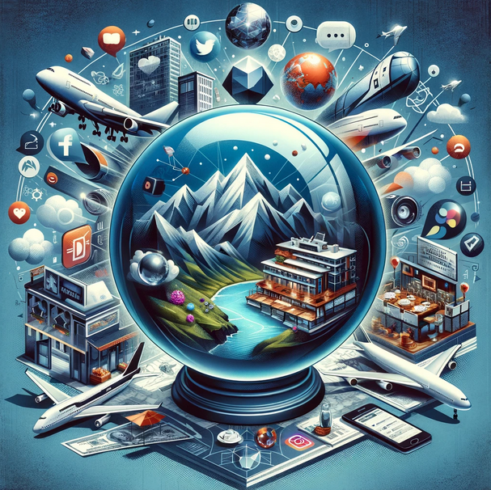

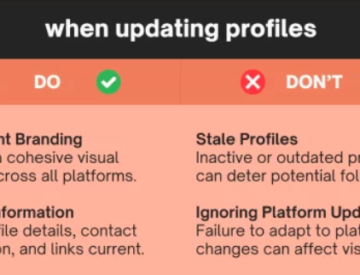







Leave a Reply